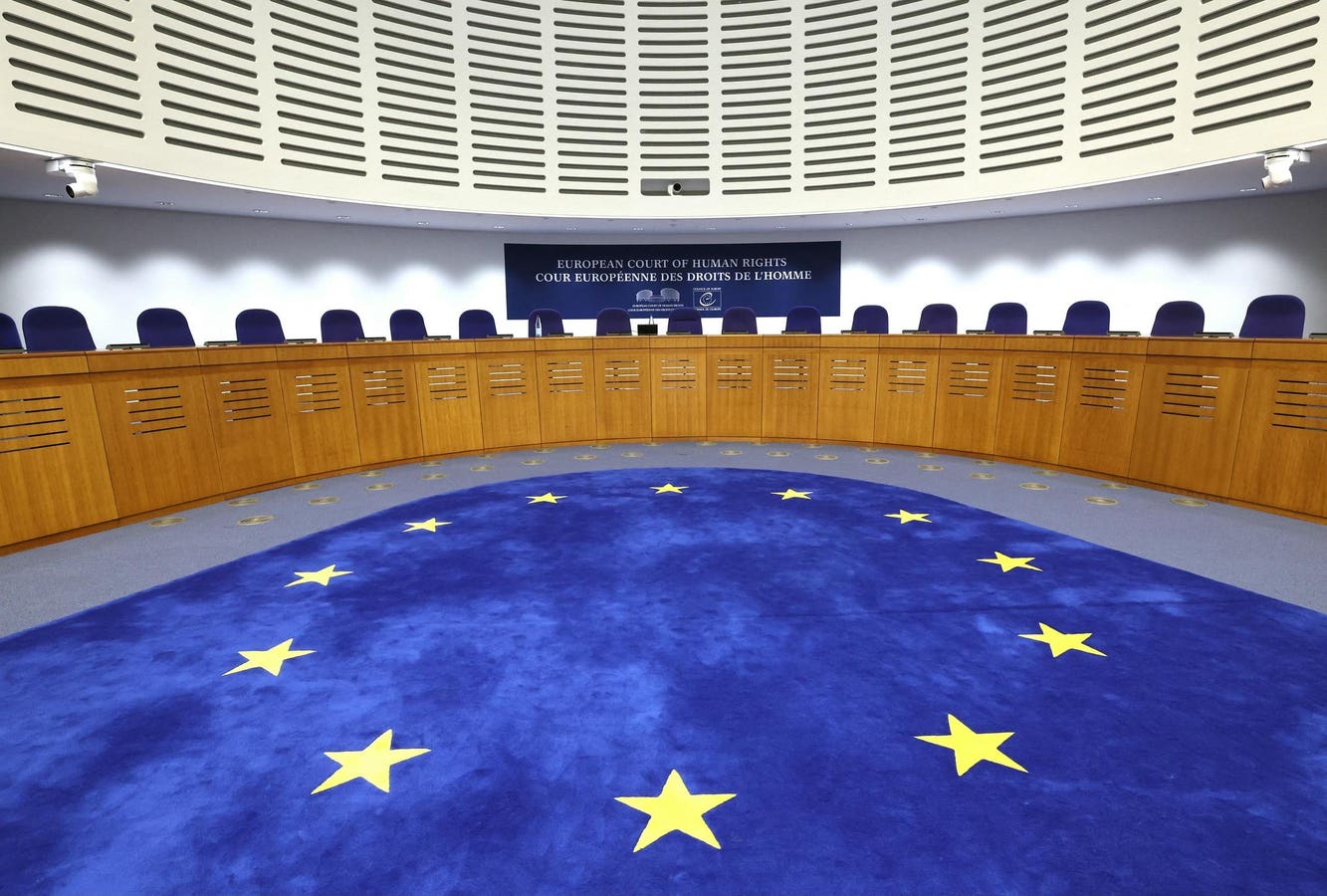The European Court of Human Rights in Strasbourg. (Photo by Frederick FLORIN / AFP) (Photo by … More FREDERICK FLORIN/AFP via Getty Images)
AFP via Getty Images
A group of nine EU member states has released an open letter, challenging Europe’s top human rights court over the way it interprets the European Convention on Human
Rights regarding migration matters. In particular, the states have complained the court’s rulings have blocked them deporting and surveilling foreigners they consider dangerous, and demanded that security matters be given precedence over human rights considerations when it comes to managing migration.
The letter, signed by leaders of Denmark, Italy, Belgium, Austria, the Czech Republic, Latvia, Estonia, Lithuania and Poland, complains that rulings from the European Court of Human Rights (ECtHR) have prevented states from being able to, in the phrasing of the signatories, “protect our democratic societies and our populations against the challenges facing us in the world today.” In this case, the ‘challenges’ in question are related to migration, particularly the relationship between irregular migration and national security.
Putting it simply, the member states want greater ability to deport and surveil migrants who they regard as threatening to public security or in some other way undesirable. These ambitions have often been frustrated by human rights protections enshrined in the European Convention on Human Rights, as upheld by rulings from the ECtHR.
In other words, states want to act in ways that may violate peoples’ human rights under the current regime, so they are calling for the regime to be modified to accommodate them.
“In our opinion, safety and security for the victims and the vast majority of law-abiding citizens is a crucial and decisive right,” reads the letter. “As a general rule, it should take precedence over other considerations.”
European courts – both at the EU and national level – have long been the bête noire of EU policymakers and commentators looking to exert more control over who comes across their borders. Anti-immigration leaders in Europe, such as Italy’s Giorgia Meloni, usually elected on platforms of lowering irregular arrivals to Europe, have tried to unilaterally implement schemes to either interdict or expel would-be irregular migrants, with apparent little consideration for the legality of such schemes.
But such considerations do not go away simply because you ignore them. As has been seen with Meloni’s controversial offshoring scheme with Albania, it is often left to national and regional courts to intervene and halt or reverse government actions because of actual or potential human rights violations. With immigration such a toxic issue in Italy, the intervention of judges has come with consequences, as individual judges have been publicly called out by name and threatened, both by members of the public and, allegedly, members of Italy’s government itself.
More broadly, the European Court of Human Rights has frequently become the target of anti-immigration commentators, echoing complaints from similar commentators in the U.K. and US. Critics accuse the court (as well as the related European Court of Justice) of judicial activism as regards migration matters, alleging the court protects the interests of foreigners while neglecting European citizens’ safety.
It’s unclear what happens now, but with this letter the signatories have directly challenged the court and, it appears, begun what they hope will be an ongoing conversation and process of re-drawing Europe’s human rights regime.
“We want to use our democratic mandate to launch a new and open-minded conversation about the interpretation of the European Convention on Human Rights,” reads the letter.
Civil society groups have reacted strongly to the letter.
“It’s sad to see our EU leaders coming together to undermine the very foundations of the EU: human rights and the rule of law,” said Silvia Carta, advocacy officer at the migration charity PICUM. “If leaders genuinely care about people’s safety and protecting victims, they should stop dismantling welfare systems and start investing in care, instead of scapegoating migrants for political gain.”
